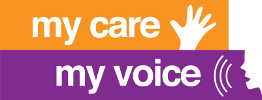- I have been diagnosed with HIV – what happens now?
- Can I choose which HIV clinic I go to?
- I have recently moved to the UK – how do I find an HIV doctor?
- What should I expect when visiting my HIV clinic?
- What tests and treatment will I have at my clinic?
- Why does my HIV doctor send me for other medical tests?
I have been diagnosed with HIV – what happens now?
The place where you were tested for HIV must have a plan in place to guide you into specialist HIV care.1 
You should receive a full assessment by an HIV doctor within 2 weeks of your HIV diagnosis. If you were diagnosed with HIV symptoms or an HIV-related illness you should be seen by an HIV doctor within 24 hours.1 
Within 2 weeks of your initial assessment (so within 1 month of your diagnosis) you should have1  :
:
- been told your CD4 count (this is a measure of the strength of your immune system – the higher the CD4 count, the better)
- had all the tests and checks which are recommended by clinical guidelines
- talked to your doctor about the management and treatment of HIV
- been told how and where you can get psychological and emotional support and other support services for people who have been diagnosed with HIV
[1] BHIVA Standards of Care- Standard 2- Access to, and retention in, HIV treatment and care.http://www.bhiva.org/standards-of-care-2012.aspx
HIV clinics are ‘open access’.  This means:
This means:
- you can move clinics at any point in your treatment
- you can go to any clinic you want, even if it is outside the area you live in
- you can go straight to the clinic you choose without being referred by a GP
If you do move though, you should let your old clinic know so that they can pass on your medical notes.
You can find a clinic by searching the NAM e-atlas .
The way to find an HIV doctor is the same for everyone, even if you are not a permanent resident or citizen.
Anyone living in England can see an HIV doctor for free, whatever your nationality or immigration status.1  You will also be given your HIV medication for free as well as any treatment you need for other sexually transmitted infections (STIs), Hepatitis or TB.2
You will also be given your HIV medication for free as well as any treatment you need for other sexually transmitted infections (STIs), Hepatitis or TB.2 
Some migrants may have to pay for their other hospital services, however, such as cancer and maternity care.2  For more information see NAT's factsheet, Who Has to Pay?
For more information see NAT's factsheet, Who Has to Pay?
[1] The National Health Service (Charges to Overseas Visitors) Regulations 2012.http://www.legislation.gov.uk/uksi/2011/1556/made
[2] The National Health Service (Charges to Overseas Visitors) Regulations 2011.http://www.legislation.gov.uk/uksi/2011/1556/made
- consulting rooms where you can talk to doctors and nurses in private
- waiting areas
- areas to take blood and do any other necessary tests.
You might also find:
- a pharmacy
- areas for counselling and advice on taking your treatment and living with HIV
If these services are not inside your clinic, they should be in the same building or nearby so that you can easily visit them on the same day as your clinic appointment.1 
[1] BHIVA Standards of Care – Standard 3 - Provision of outpatient treatment and care for HIV, and access to care for complex comorbidity. http://www.bhiva.org/standards-of-care-2012.aspx

You will have between 2 and 4 appointments a year with your HIV doctor (every 3-6 months). At these visits you may have tests including2  :
:
- checking your CD4 count (a measure of the impact of HIV on your immune system – the higher your CD4 count the better)
- measuring your viral load (a measure of how much HIV is detectable in your blood – the lower the viral load the better)
Your HIV doctor will also prescribe medication which is designed to lower your viral load to tiny amounts, fighting the impact of HIV on your immune system. As a result your CD4 count will increase.
Your doctor will talk to you about how you are feeling physically, including any side effects of treatment or other symptoms you are experiencing, and how you are managing with taking your medication (if you have started treatment).3 
Your doctor should also ask how you are feeling emotionally and psychologically and tell you where you can get support for any problems you are having.3 
[1] BHIVA clinical guidelines. http://www.bhiva.org/ClinicalGuidelines.aspx
[2] BHIVA Guidelines for the Routine Investigation and Monitoring of HIV-1-infected Individuals.http://www.bhiva.org/Monitoring.aspx
[3] BHIVA Standards of Care – Standard 3 - Provision of outpatient treatment and care for HIV, and access to care for complex comorbidity. http://www.bhiva.org/standards-of-care-2012.aspx
HIV is a complex condition which can affect your physical and mental health in lots of different ways. Medical studies have found that people living with HIV are more likely to experience other health problems which are not directly HIV-related, but have an impact on your overall well being.
For this reason your HIV doctor will send you for extra tests to check if any of the following might affect you:
- sexually transmitted infections
- heart disease risk
- kidney problems
- smoking history
- hepatitis A, B and C
- TB
You will also be tested to find out if there are any HIV drugs which will not work for you. This is called ‘HIV drug resistance’ and can be transmitted with the virus.

 This is advice on how to get the most out of your services
This is advice on how to get the most out of your services






